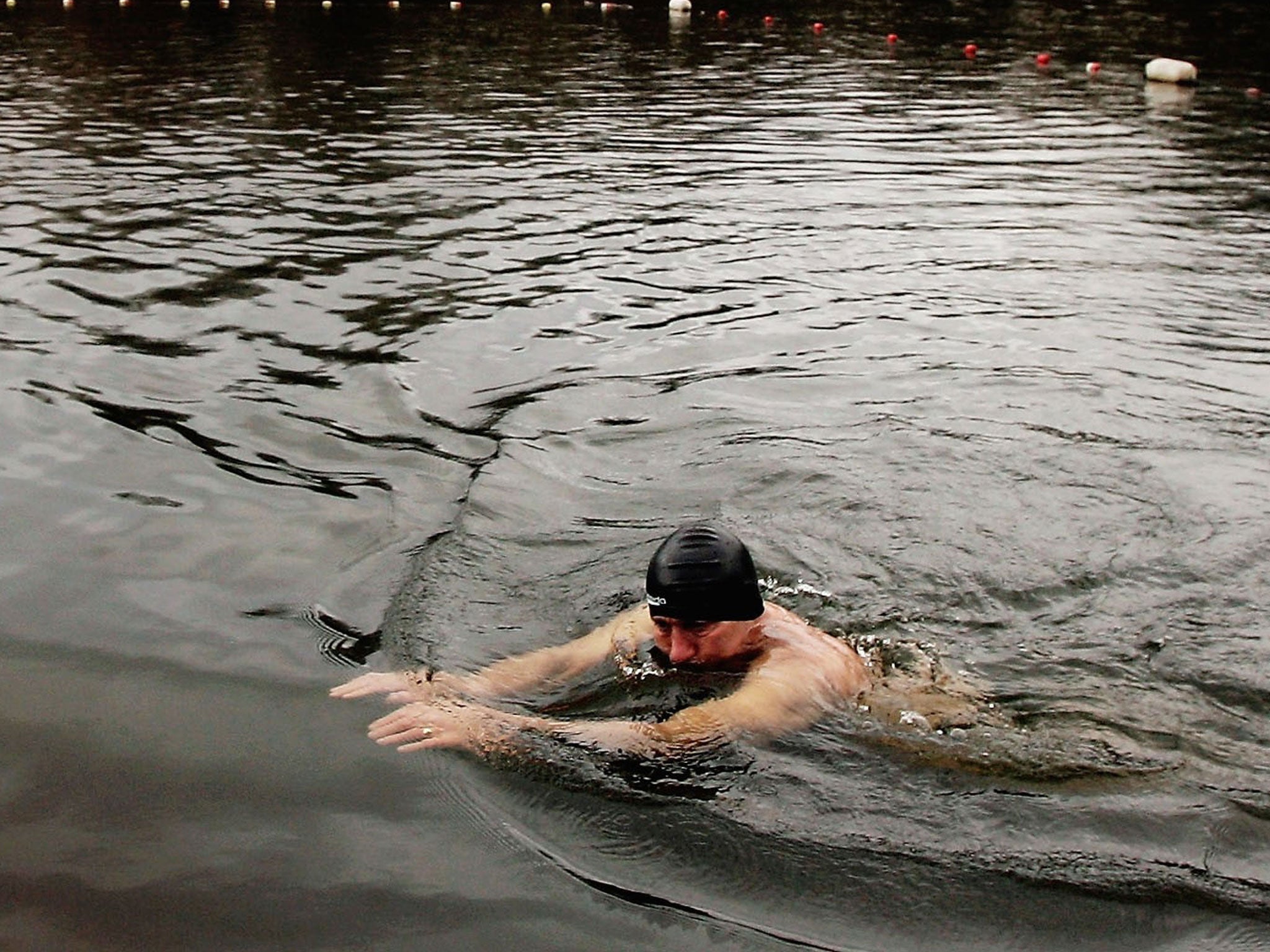Review: Pondlife: A Swimmer's Journal, By Al Alvarez
Journey with gritted teeth through hell and cold water

Al Alvarez – poet, critic, mountaineer, all-night poker fiend – was 11 when first he swam in the waters of Hampstead Heath. Now, some seven decades later, he's still immersing himself in the often freezing London ponds, only now it's more as a balm to his aching limbs than to his adrenalin compulsion.
Pondlife begins in 2002 as a journal of the daily dips he takes, but becomes, over the course of the nine years that it covers, an agitated meditation on senescence and a pugnacious swipe at the maladies that lay him low.
"When in doubt, grit your teeth and do it," is his maxim during those early passages in which he pegs out life at the ponds. With each entry comes a Helen Fielding-esque catalogue of date, temperature, birds that flit in and away, and descriptions of the water (invariably "sweet" and "refreshing"). It appears to be deliberately monotonous in order, not only to evoke the sense that Alvarez treats these swims as part of his everyday ablutions, but also, perhaps, to make the moment when his infirmity means that he can no longer partake in them all the more jolting to the system.
While there is some satisfaction to be had from the poet's description of the rhythm of incremental change in his surroundings – as subtle, often, as ripples in the pond – it is when Alvarez moves out of the water that he truly engages. It is not the number of famous people populating his anecdotes that is of such interest (though there are many), nor his relationship with the pool lifeguards (love him, though they do). Rather, it is the near-collapse of body and mind that change his prose from the gently poetic to the wrenchingly poignant.
It begins with his gammy ankle – a legacy of his rock-climbing days – which, by the end of 2003, has "swollen to elephant size" and been joined by the disobedience of housemaid's knee, making it hard even to hobble. Asked by an elderly passer-by if he needs help, Alvarez writes: "I would have kicked him in the crutch if I hadn't known I'd topple over if I tried" – a vituperative inner monologue that he will soon bring to bear on himself.
His ankle becomes increasingly unreliable; he trips over uneven paving stones and suffers nasty cuts from falls. His health declines to the extent that, "I feel cut off from my real life. For my imagination to kick in and my language to come alive, I need to feel alive physically."
His decrepitude worsens after a stroke. It is notable that the diary entries become less and less frequent, though the luminescence of a remarkable mind remains. Not least in his fulminations at both his body – "There are 90-year-olds who move better than I do. I'm not just depressed by the state I am in. I am outraged" – and the way he is treated – most notably when the NHS makes the extraordinary decision to take away his blue badge for not being incapacitated enough.
The final pages are an artistic triumph, and worth the reading alone; the rawness and linguistic economy with which he describes staring into the abyss is exquisite – and exquisitely distressing. If this is the last we are to read of Alvarez's words, then it is the most almightily affecting send-off. "Vale," he concludes the journal, quoting Villa: "Don't let me die like this. Tell them I said something clever." That, he most certainly has.
Subscribe to Independent Premium to bookmark this article
Want to bookmark your favourite articles and stories to read or reference later? Start your Independent Premium subscription today.

Join our commenting forum
Join thought-provoking conversations, follow other Independent readers and see their replies